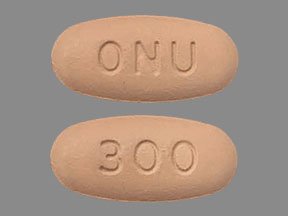Azacitidine Disease Interactions
There are 4 disease interactions with azacitidine.
Azacitidine (applies to azacitidine) hepatic tumors
Major Potential Hazard, Moderate plausibility.
The use of azacitidine injection is contraindicated in patients with advanced malignant hepatic tumors.
Azacitidine (applies to azacitidine) hepatic impairment
Moderate Potential Hazard, Moderate plausibility. Applicable conditions: Liver Disease
Azacitidine is potentially hepatotoxic in patients with preexisting hepatic impairment and caution should be exercised when prescribing in patients with liver disease.
Azacitidine (applies to azacitidine) renal impairment
Moderate Potential Hazard, Moderate plausibility. Applicable conditions: Renal Dysfunction
Patients with renal impairment may be at increased risk of renal toxicity when using azacitidine. This drug is primarily excreted by the kidneys. Therefore, these patients should be closely monitored for toxicity.
Miscellaneous antineoplastics (applies to azacitidine) anemia
Moderate Potential Hazard, Moderate plausibility. Applicable conditions: Neutropenia, Thrombocytopenia
Some miscellaneous antineoplastics such as azacitidine and lenalidomide cause anemia, neutropenia, and thrombocytopenia. Patients with these preexisting conditions should be monitored carefully. Monitor complete blood counts frequently for response and/or toxicity, at a minimum, prior to each dosing cycle.
Switch to professional interaction data
Azacitidine drug interactions
There are 183 drug interactions with azacitidine.
More about azacitidine
- azacitidine consumer information
- Check interactions
- Compare alternatives
- Pricing & coupons
- Reviews (19)
- Side effects
- Dosage information
- During pregnancy
- Drug class: miscellaneous antineoplastics
- Breastfeeding
- En español
Related treatment guides
Drug Interaction Classification
| Highly clinically significant. Avoid combinations; the risk of the interaction outweighs the benefit. | |
| Moderately clinically significant. Usually avoid combinations; use it only under special circumstances. | |
| Minimally clinically significant. Minimize risk; assess risk and consider an alternative drug, take steps to circumvent the interaction risk and/or institute a monitoring plan. | |
| No interaction information available. |
See also:
Further information
Always consult your healthcare provider to ensure the information displayed on this page applies to your personal circumstances.


